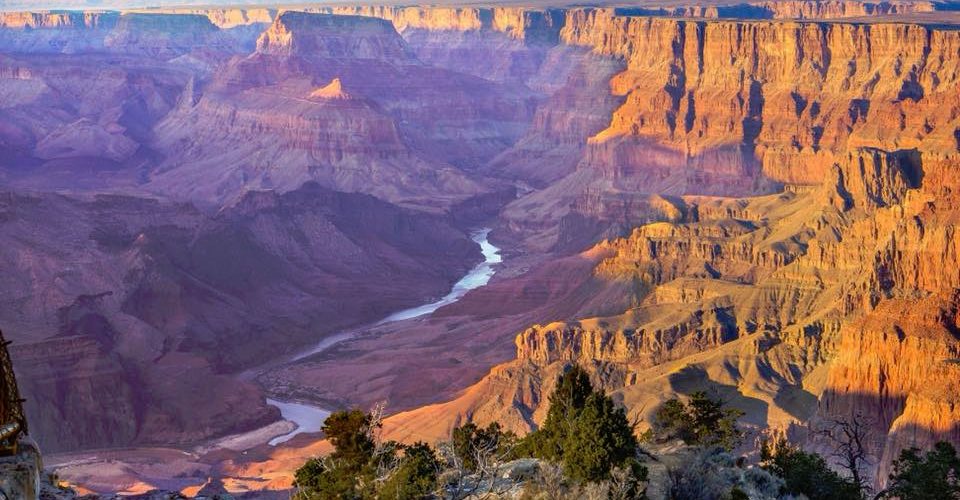Relying on the 117-year-old Antiquities Act, President Joe Biden on Tuesday said he would designate nearly 1 million acres of land in northern Arizona as a national monument.
The new designation would end new mining claims in the area permanently. Mining in the affected area is already blocked until 2032. Claims initiated before 2012 will remain valid, however.
The new restriction was met with concern from Arizona’s business community.
“If the Biden administration truly wants to reduce Americans’ carbon footprint, then it will need to rely on the country’s mining industry to extract the critical minerals necessary to produce clean energy. Otherwise, it will have to look overseas, including to countries hostile to the United States,” Arizona Chamber of Commerce & Industry President and CEO Danny Seiden said. “This move undermines the country’s national security and weakens our competitiveness.”
Mining extracts raw materials like lithium, cobalt, and manganese for the batteries in electric vehicles. Much of the material is mined in China.
West Virginia Sen. Joe Manchin, a Democrat, was blunt in his assessment of the consequences.
“The newly created Grand Canyon National Monument will permanently ban new uranium mining on almost one million acres of federal land while the United States continues to rely on Russia for the enriched uranium we need for energy and national security. This should serve as a wake-up call that we will not remain the superpower of the world if we continue to depend on countries that don’t share our values, whether it’s uranium from Russia or critical minerals controlled by China.”
Utah Gov. Spencer Cox cited the move’s effect on advanced manufacturing. In a statement, Cox said monument designations “needlessly restrict access to the critical minerals that are key to cell phones, satellites, U.S. defense systems and so many other American industries.”
Seiden said the designation is “yet another example of Washington meddling in Arizona’s environmental and land management. Add this to an already long list.”
The business community over the last several years has been at odds with the federal government on issues ranging from air quality standards that restrict the region’s economic growth, the regulation of waterways, forest health, and more.
Also expressing opposition to the new monument was the Arizona Farm Bureau. Public radio station KJZZ reported that Government Relations Manager Daniel Harris said his organization “is concerned with the impacts to grazing rights, access and ability to maintain those allotments, and therefore cannot support a national monument designation without recognizing and protecting these uses.”
The proposal to establish a national monument in northern Arizona was first floated during the Obama administration, though President Obama stepped back from the idea following public backlash.
“President Obama seems to have heard the message that Arizonans are not on board with plans for Washington to lock-up another 1.7 million acres in our state,” said then-Sen. John McCain, R-Ariz., in January 2017.
The Biden Administration designation encompasses 917,618 acres.
State Senate Majority Leader Sonny Borrelli and State House Majority Leader Leo Biasucci, both Republicans from Mohave County, spoke out against the proposal, saying that it is likely illegal, an unwise expansion of the federal government’s already extensive land portfolio, and has been undertaken without sufficient input from local residents and communities.
“We must give the members of the local community an opportunity to be heard,” said Biasucci, who pointed out that the Department of the Interior only held a public comment session in Coconino County — where support for the move is strong — and not in Mohave County, where public opposition runs high.
“The federal government already controls too much of our land,” Borrelli said.
Both legislative leaders are concerned that the designation would violate the Statehood Enabling Act, as well.
















Add comment